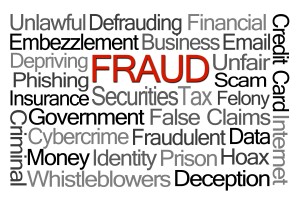Private Investigators have been required to be licensed in New Zealand since 1974. You would have thought that by now there would be a proper enforcement regime in place. Yet, it seems that some people will do anything to avoid meeting their obligations whilst touting for business and remarkably being instructed by leading insurance companies. The case in point can be read here.
Insurance is based on the premise of “the utmost good faith” which goes both ways. When you lodge a claim you might expect that the insurer would have a look at the bona fides of what you are claiming and that will often involve an investigation. What you don’t expect is that their appointed investigator in a country that has had licensing laws for 42 years will be breaking the law by being unlicensed. Further, you would expect in a fire claim that the investigator would have proven skills, experience gained over years either by way of qualifications and/or accepted work history. You would not expect the investigator to have attended a 1 week fire course, as mentioned in this next article – read here.
The investigator says that he was of the opinion he did not need to be licensed because he was a “specialist”, the sad fact is that if you cannot work out you are breaking the law, you need to think long and hard about your ability to investigate at all.
Why does this case stick in our craw, well Licensed investigators in New Zealand have to jump through hoops to operate for fear of prosecution and at considerable cost. We also are required by larger clients to hold indemnity insurance policies in the $millions. How then was this unlicensed investigator able to pick up work from insurers is a question that baffles even seasoned investigators. It seems they came unstuck but it is unbelievable to think that such a situation could occur in such a long time regulated profession.
Our understanding of the Privacy Act is that when you lodge a claim you agree pursuant to the Privacy Act to assist the insurer, but any offending by an agent of the insurer is, by default, offending by the insurer. It’s kind of like the Police getting a bad warrant; evidence obtained by acting on that warrant might not be admissible. We accept privacy matters relating to insurance law is in the civil jurisdiction and not criminal but insurers do refer insurance fraud to the Police so the same rules of conduct relating to investigating claims remain.
The point here is that if you are looking to engage an investigator, make sure you have evidence they are licensed. This case suggests you might go so far as sighting the licence which is a simple scan and email compliance. Any client instructing an unlicensed investigator is taking a big punt and the few dollars per hour less in charges might in turn result in a higher cost spent on lawyers.

